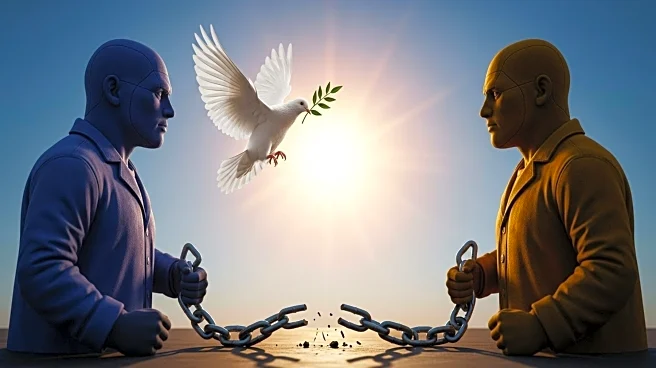What's Happening?
A significant development has occurred in the ongoing conflict between Israel and Gaza, as nearly 2000 Palestinian prisoners and detainees held in Israeli prisons have been released into Gaza and the occupied West Bank. This action is part of the first phase of a ceasefire deal. Concurrently, Hamas has freed all 20 surviving Israeli hostages who had been held captive in Gaza for over two years. The exchange marks a pivotal moment in the ceasefire agreement, with reactions emerging from both Gaza and Tel Aviv.
Why It's Important?
The exchange of hostages and prisoners is a critical step in the ceasefire process, potentially easing tensions between Israel and Gaza. This development could lead to further negotiations and a reduction in hostilities, impacting regional stability. The release of prisoners and hostages may also influence public sentiment and political dynamics within both territories, affecting future diplomatic relations and peace efforts.
What's Next?
Following the exchange, stakeholders may engage in further discussions to solidify the ceasefire and address underlying issues. The international community, including mediators and peace organizations, may play a role in facilitating dialogue and ensuring compliance with the agreement. Monitoring the situation will be crucial to prevent any resurgence of conflict and to support long-term peace initiatives.
Beyond the Headlines
The exchange highlights the complex humanitarian and ethical dimensions of the conflict, raising questions about the treatment of prisoners and the impact of prolonged captivity on individuals and communities. It underscores the need for comprehensive solutions that address human rights and foster reconciliation.









